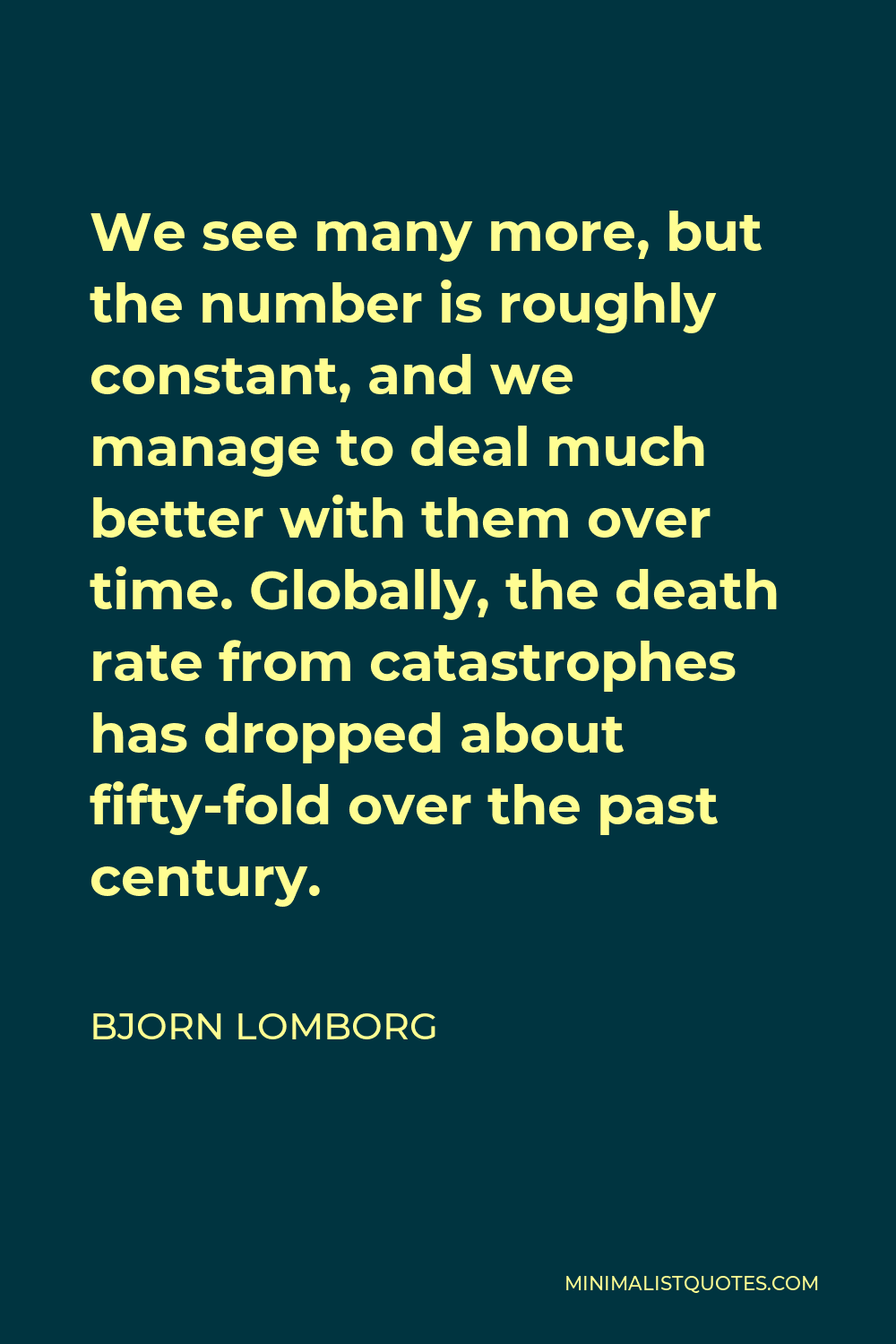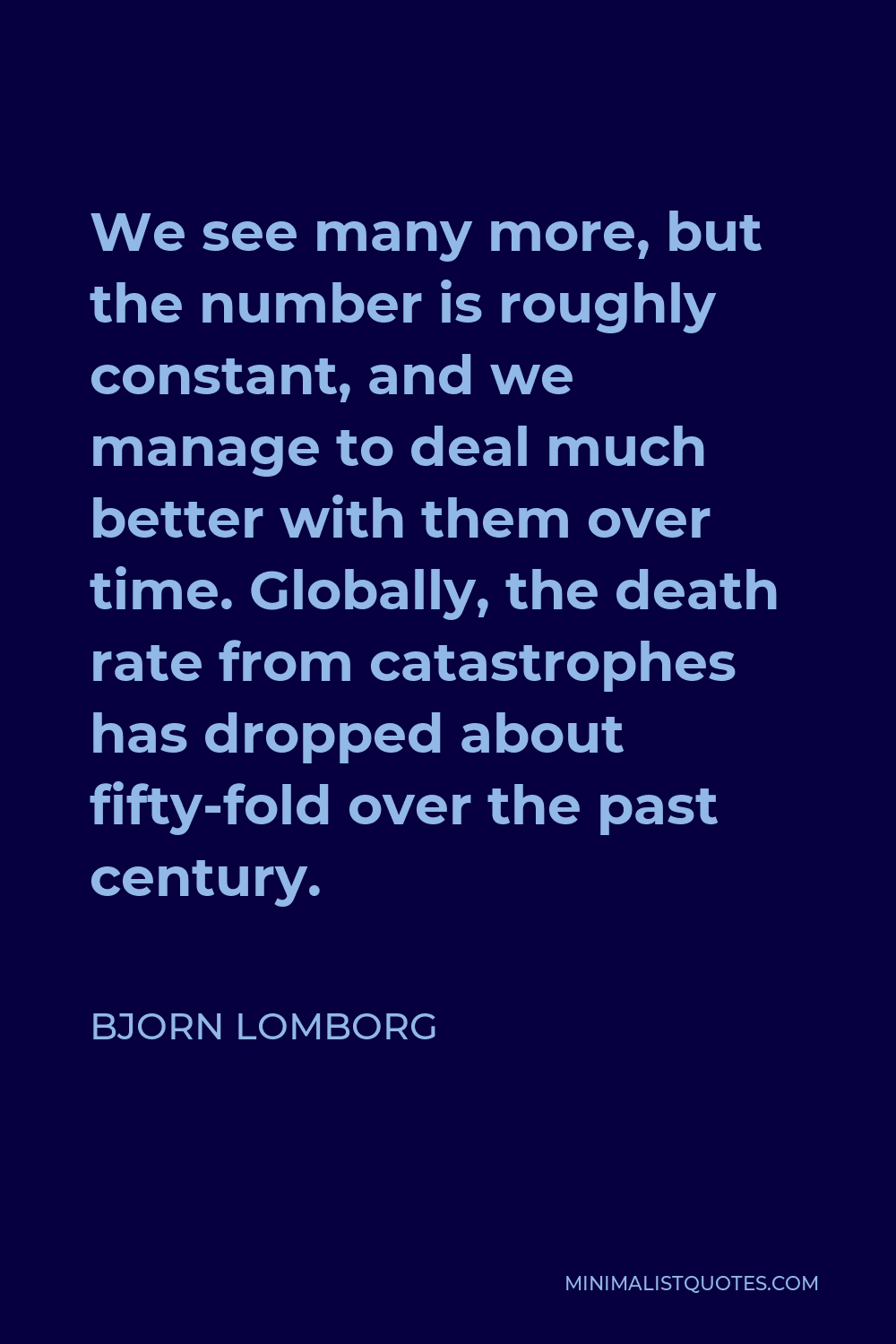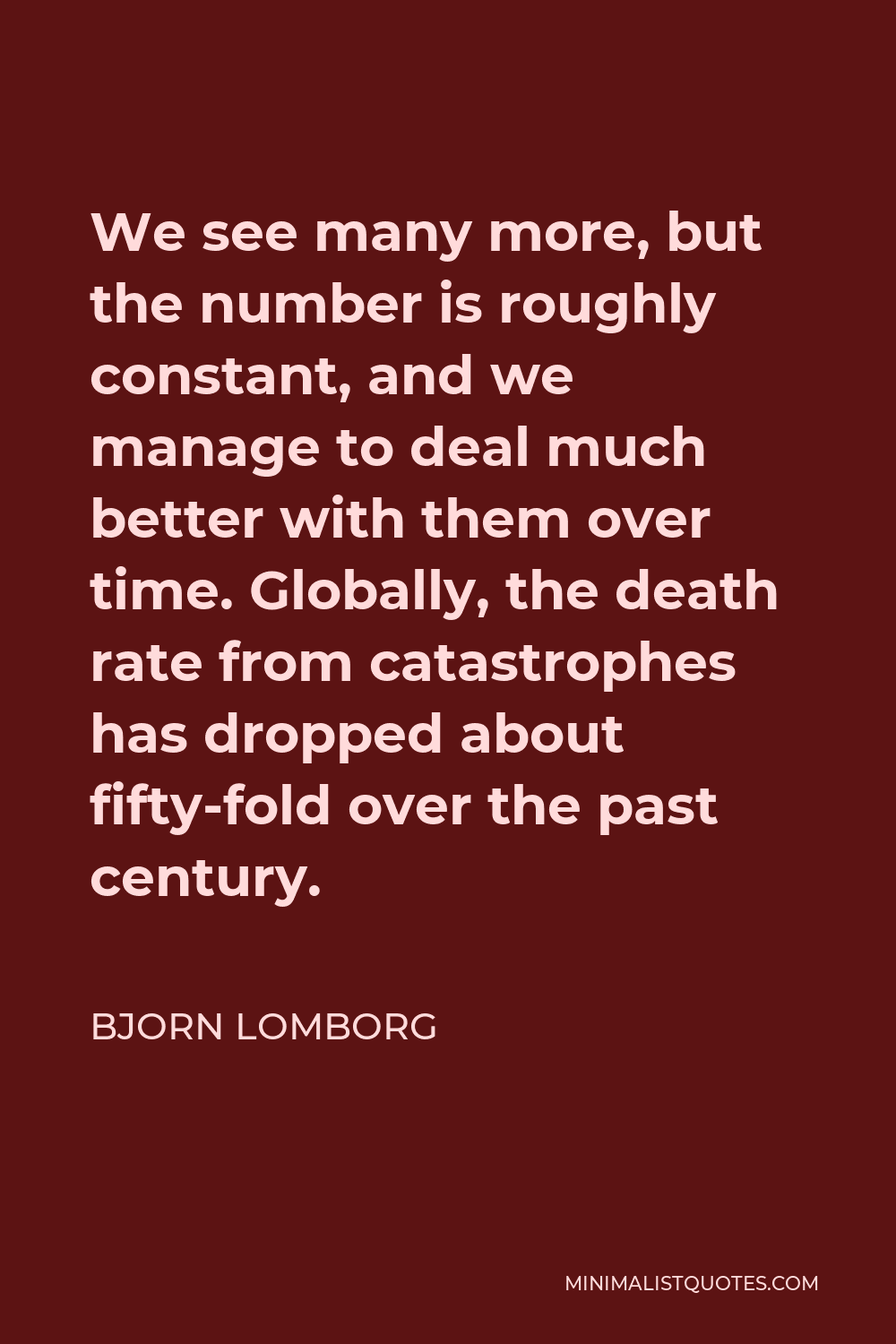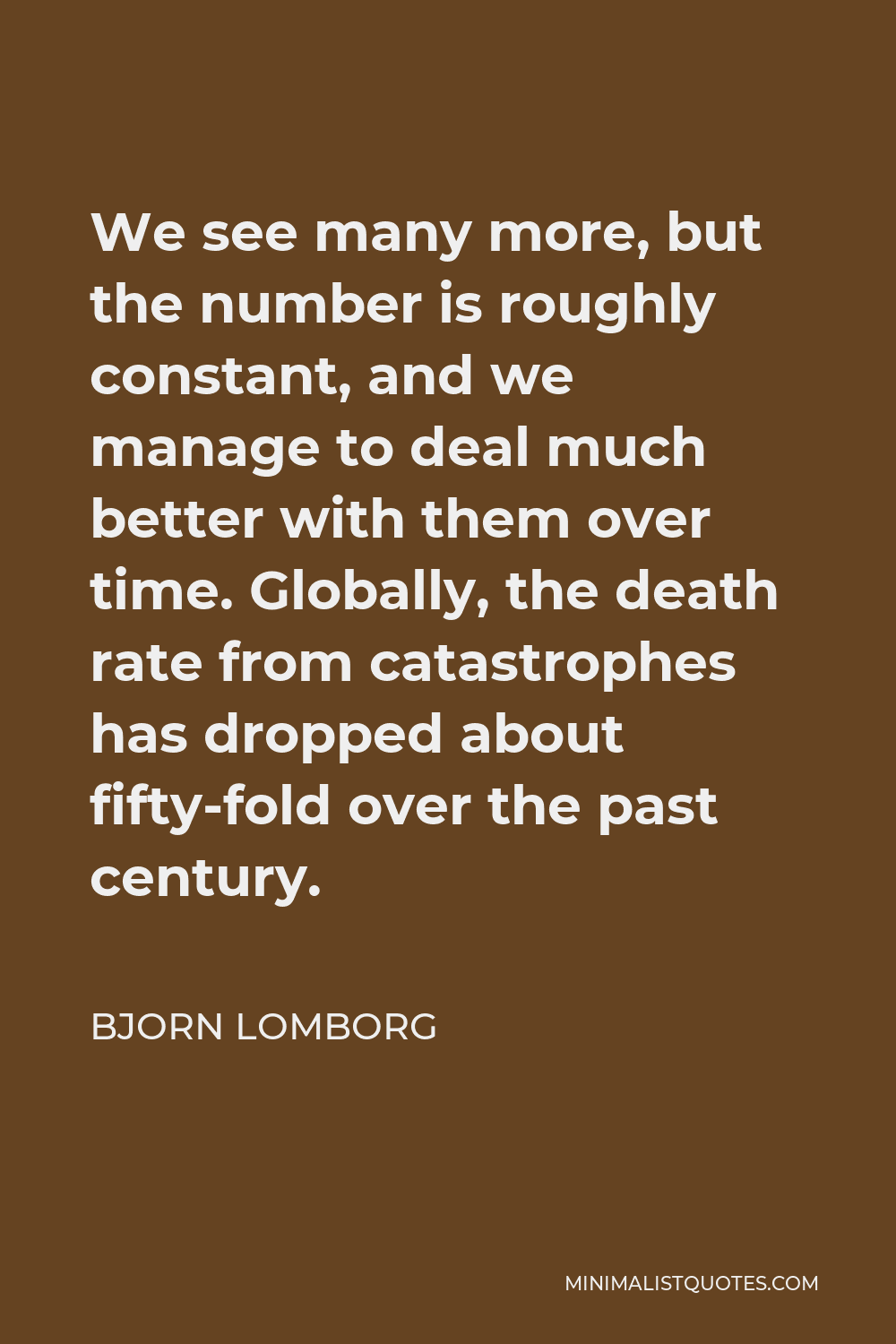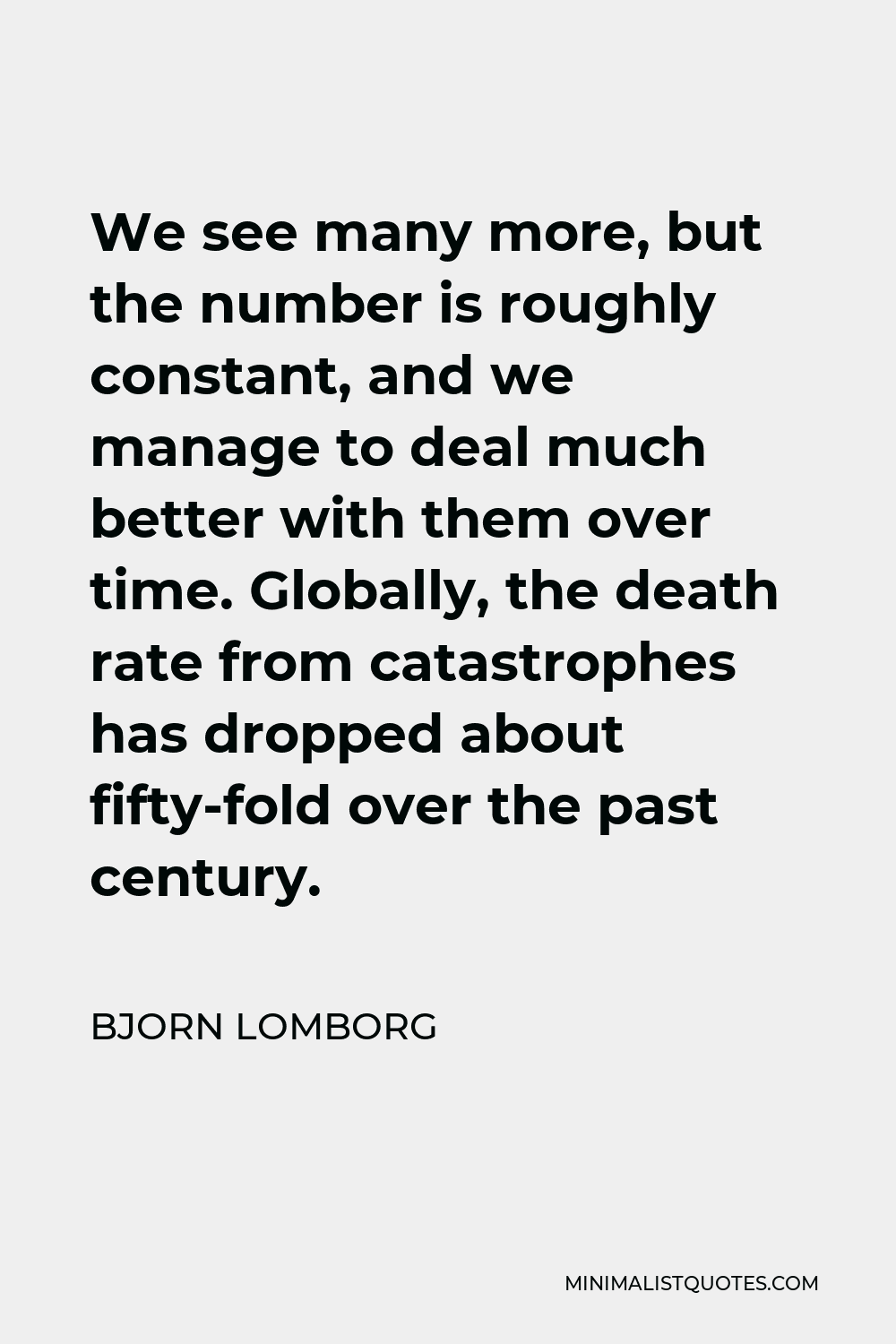There is something wrong with saying we should start using renewables now, while they are still incredibly expensive.
BJORN LOMBORGWe see many more, but the number is roughly constant, and we manage to deal much better with them over time. Globally, the death rate from catastrophes has dropped about fifty-fold over the past century.
More Bjorn Lomborg Quotes
-





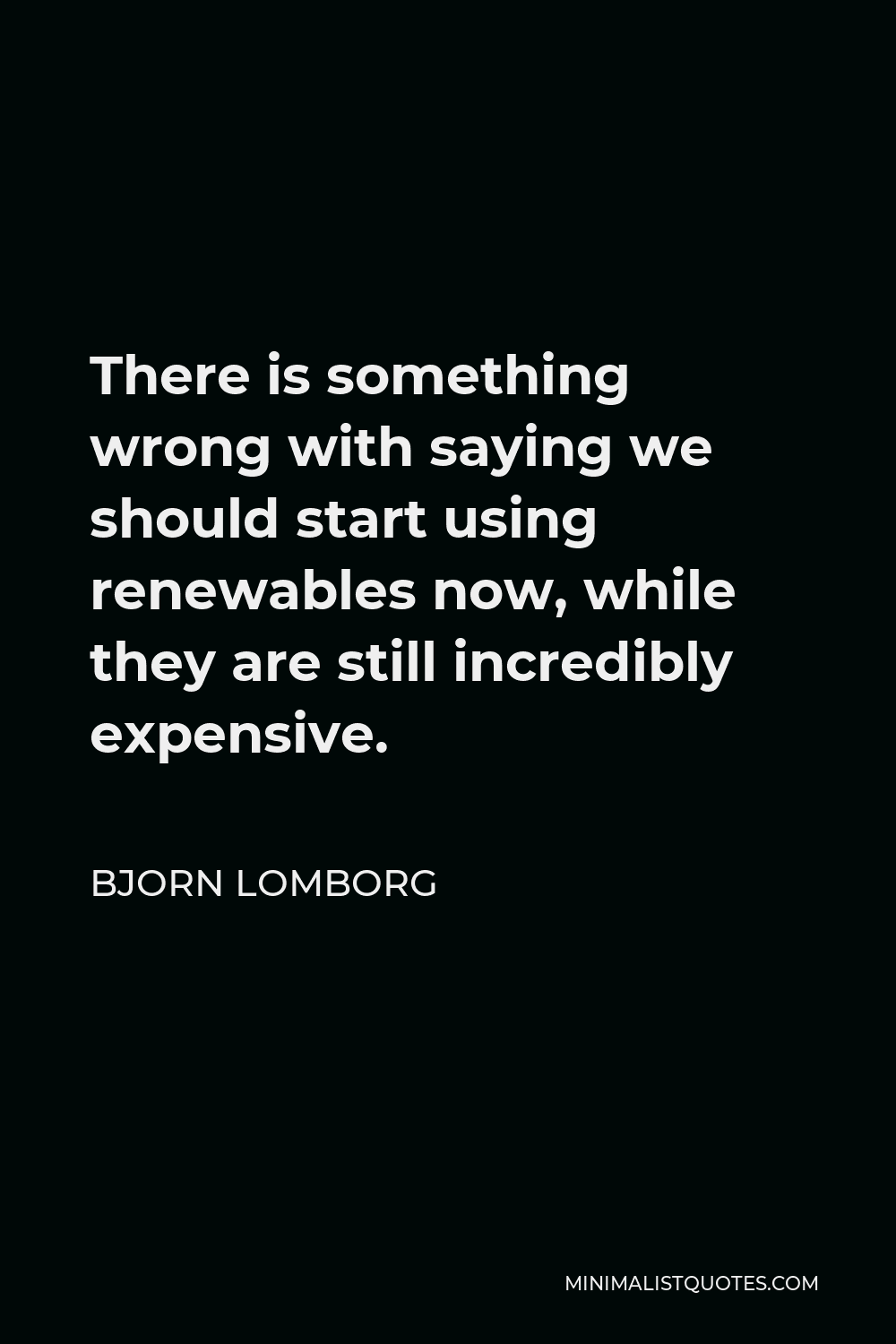
-






The only thing that will really change global warming in the long run is if we radically increase the speed with which we get alternative technologies to deal with climate change.
BJORN LOMBORG -





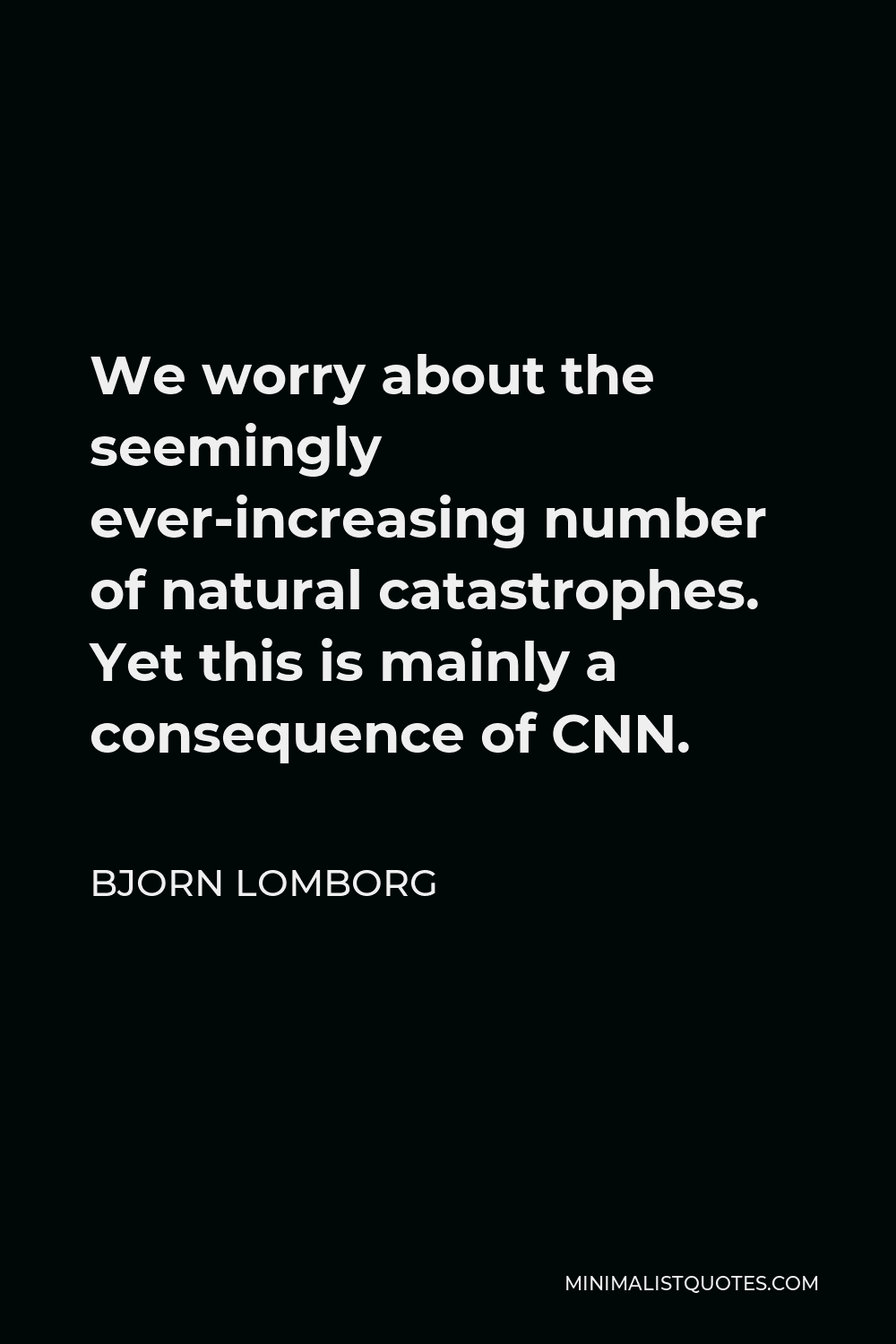
We worry about the seemingly ever-increasing number of natural catastrophes. Yet this is mainly a consequence of CNN.
BJORN LOMBORG -





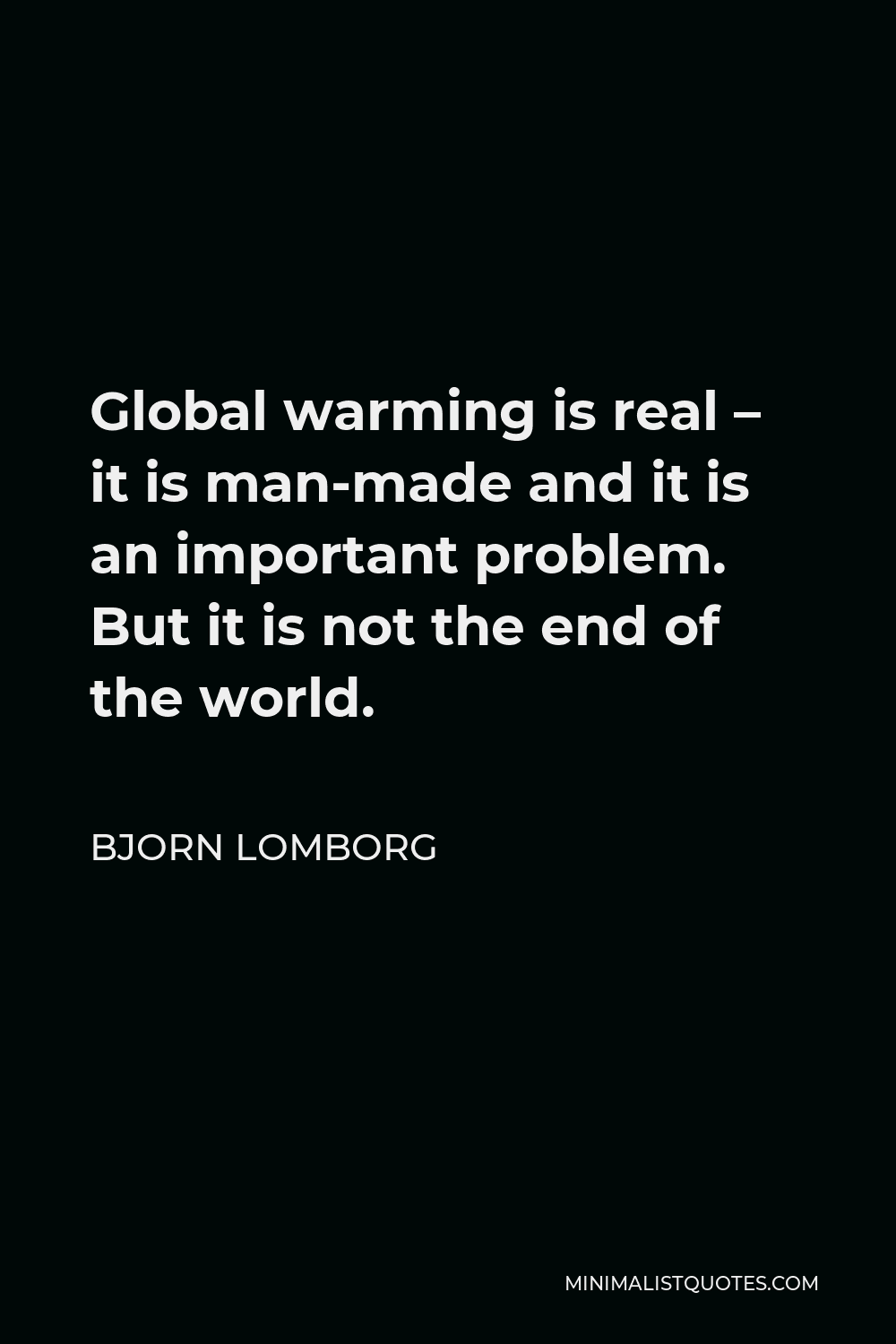
Global warming is real – it is man-made and it is an important problem. But it is not the end of the world.
BJORN LOMBORG -






The second thing is, if you want to do something about global warming, you have to think much more long-term.
BJORN LOMBORG -





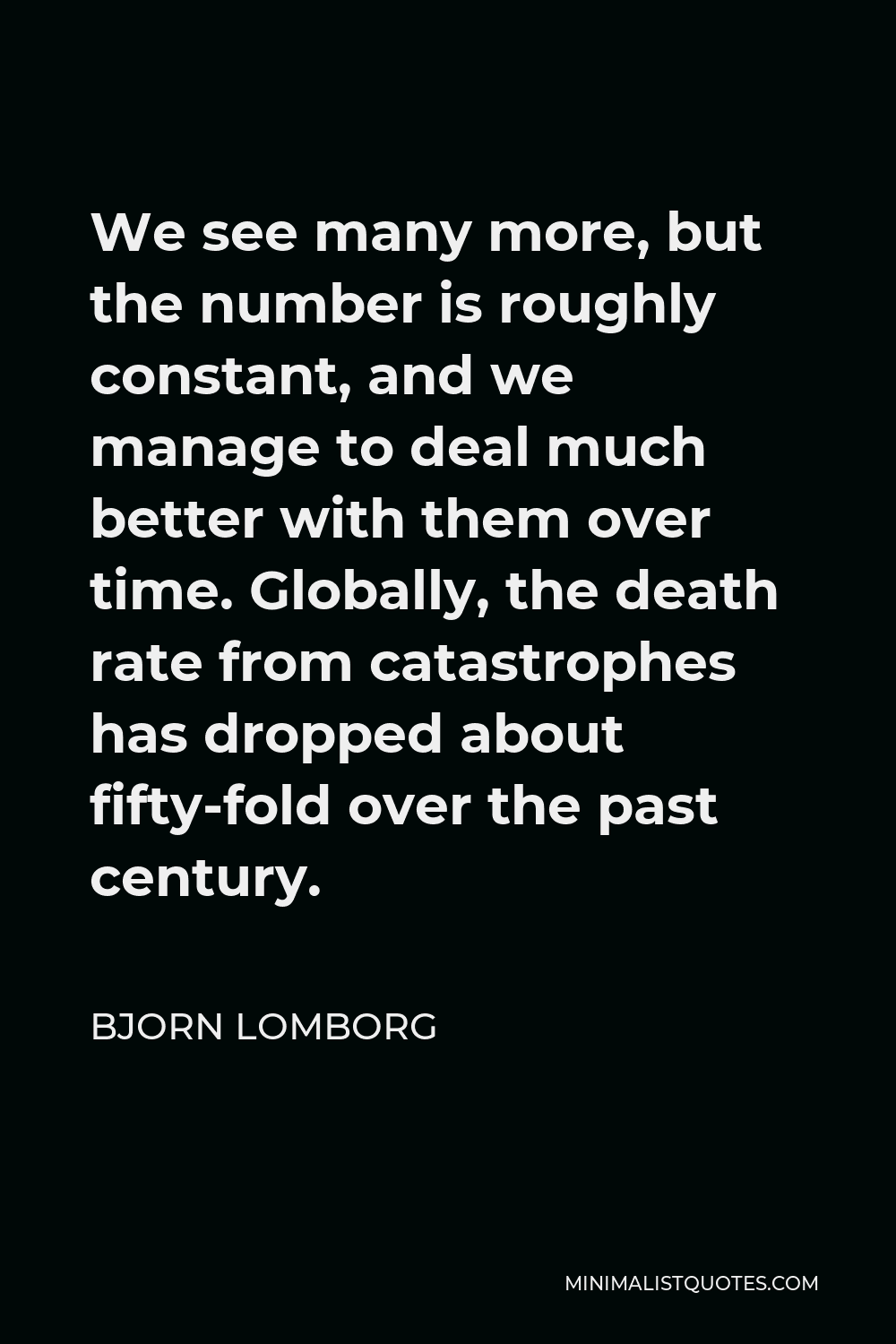
We see many more, but the number is roughly constant, and we manage to deal much better with them over time. Globally, the death rate from catastrophes has dropped about fifty-fold over the past century.
BJORN LOMBORG -





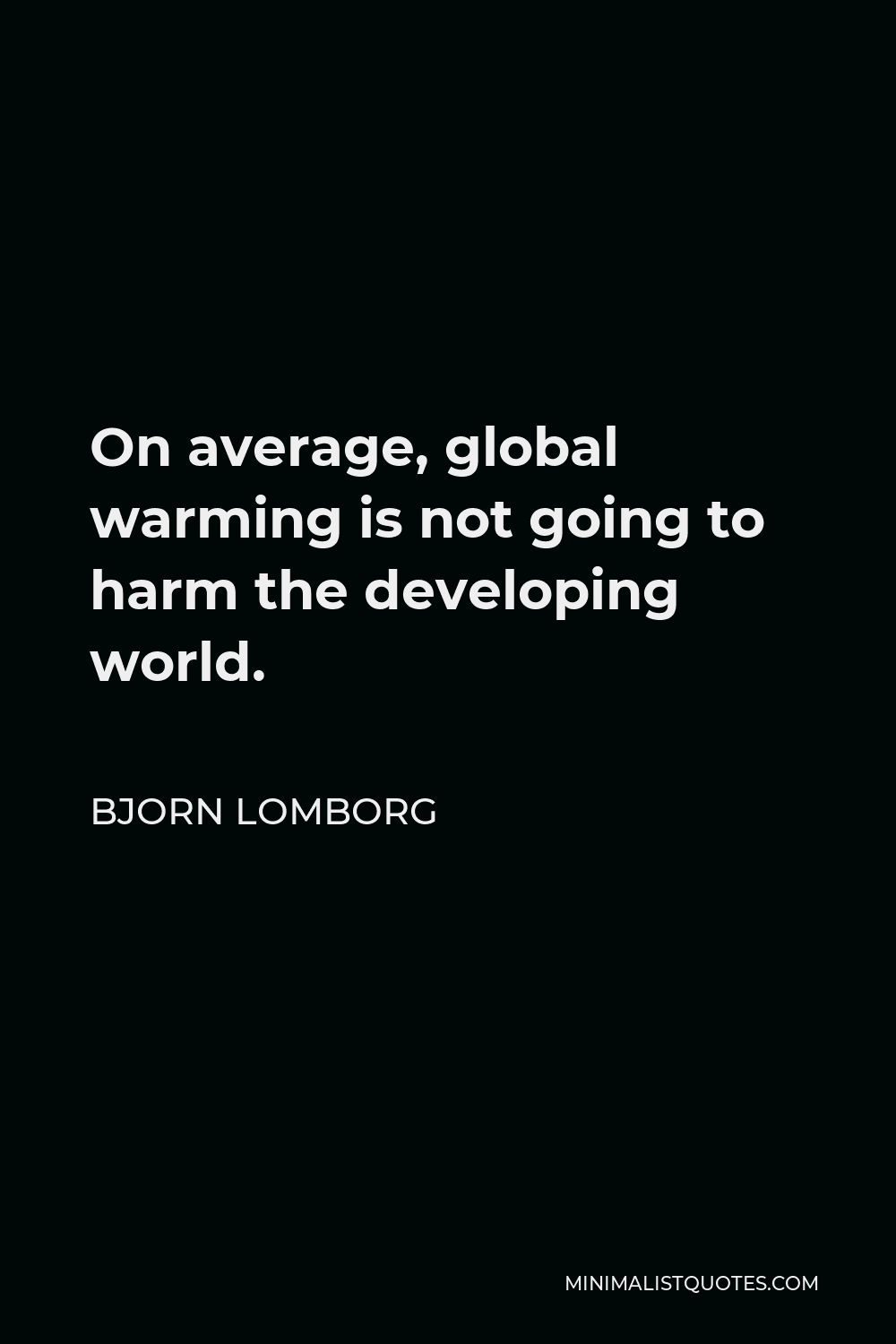
On average, global warming is not going to harm the developing world.
BJORN LOMBORG -






Wishful thinking is not sound public policy.
BJORN LOMBORG -






Nobody wanted to buy a computer in 1950, but once they got cheap, everyone bought them.
BJORN LOMBORG -





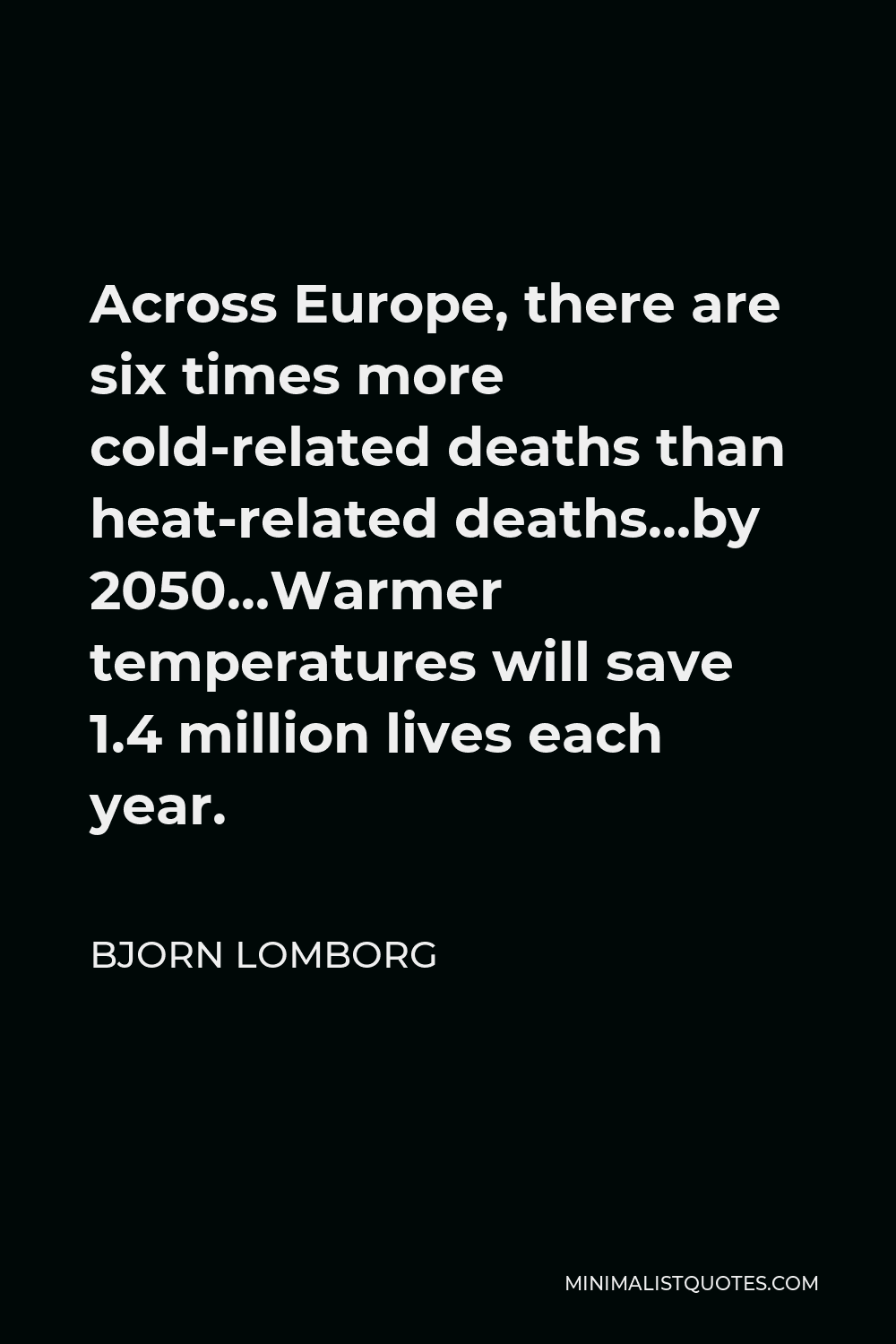
Across Europe, there are six times more cold-related deaths than heat-related deaths…by 2050…Warmer temperatures will save 1.4 million lives each year.
BJORN LOMBORG -






Of course, the world is full of problems. But on the other hand it’s important to get the sense… are we generally moving in the right direction or the wrong direction?
BJORN LOMBORG -





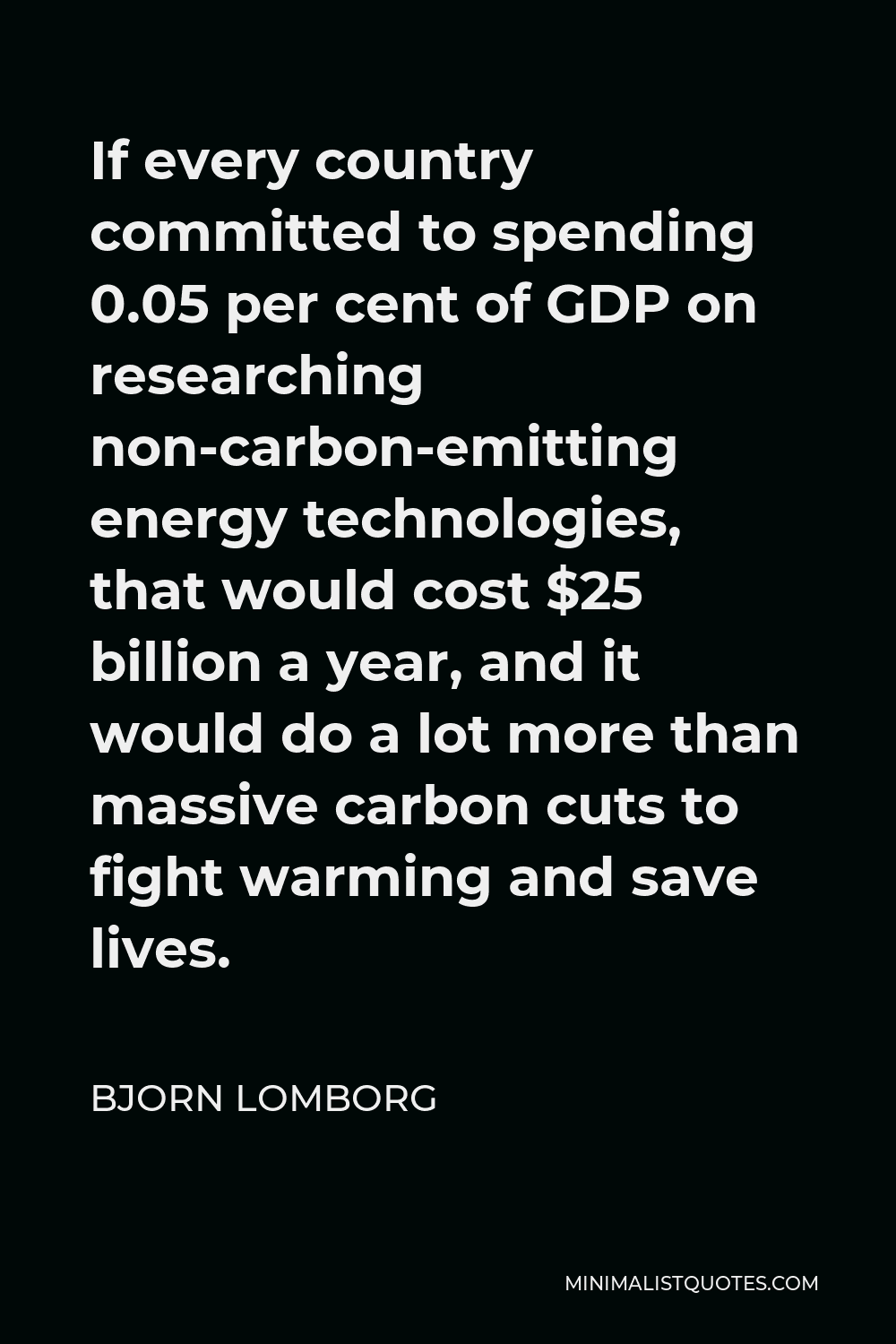
If every country committed to spending 0.05 per cent of GDP on researching non-carbon-emitting energy technologies, that would cost $25 billion a year, and it would do a lot more than massive carbon cuts to fight warming and save lives.
BJORN LOMBORG -





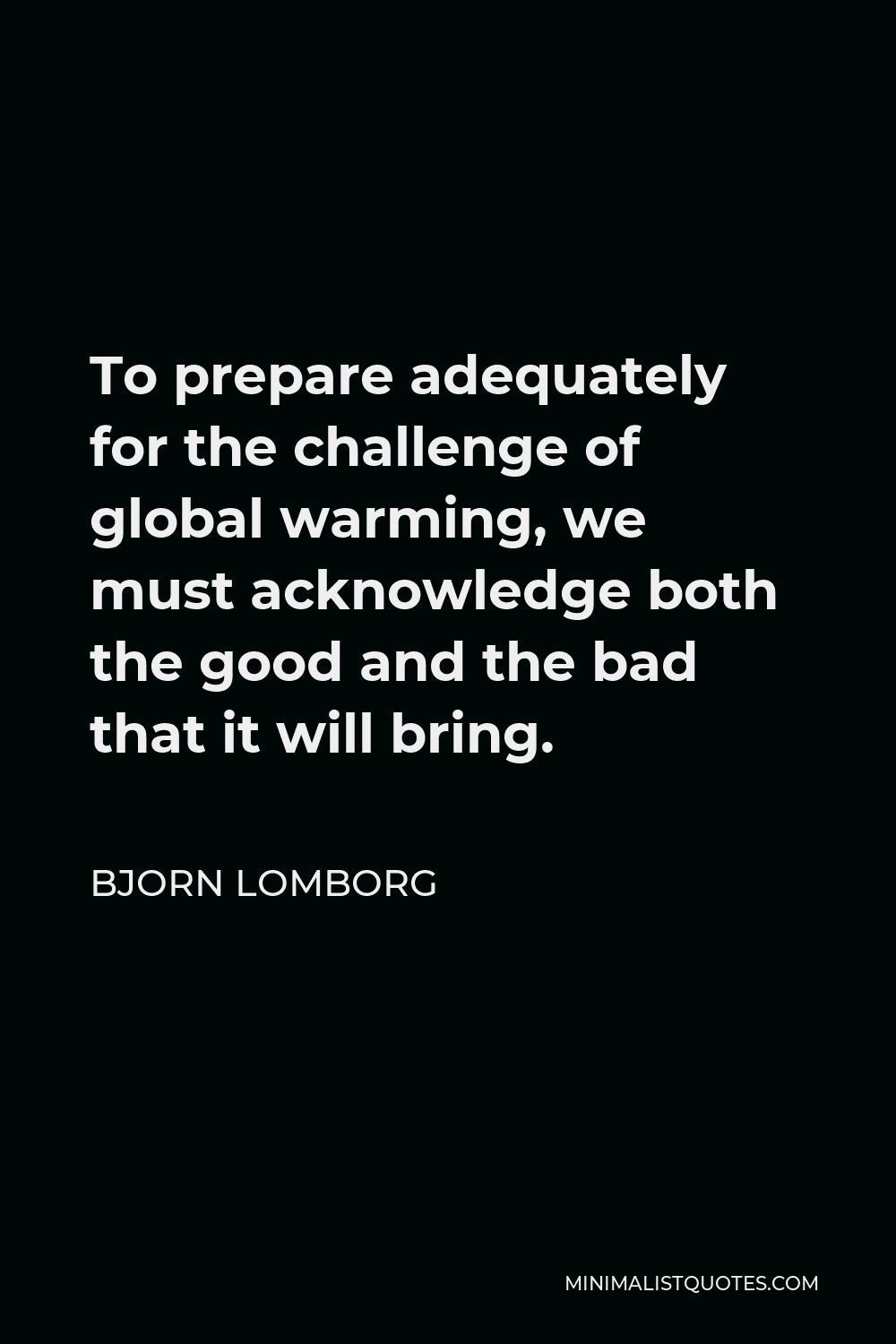
To prepare adequately for the challenge of global warming, we must acknowledge both the good and the bad that it will bring.
BJORN LOMBORG -






Money spent on carbon cuts is money we can’t use for effective investments in food aid, micronutrients, HIV/AIDS prevention, health and education infrastructure, and clean water and sanitation.
BJORN LOMBORG -





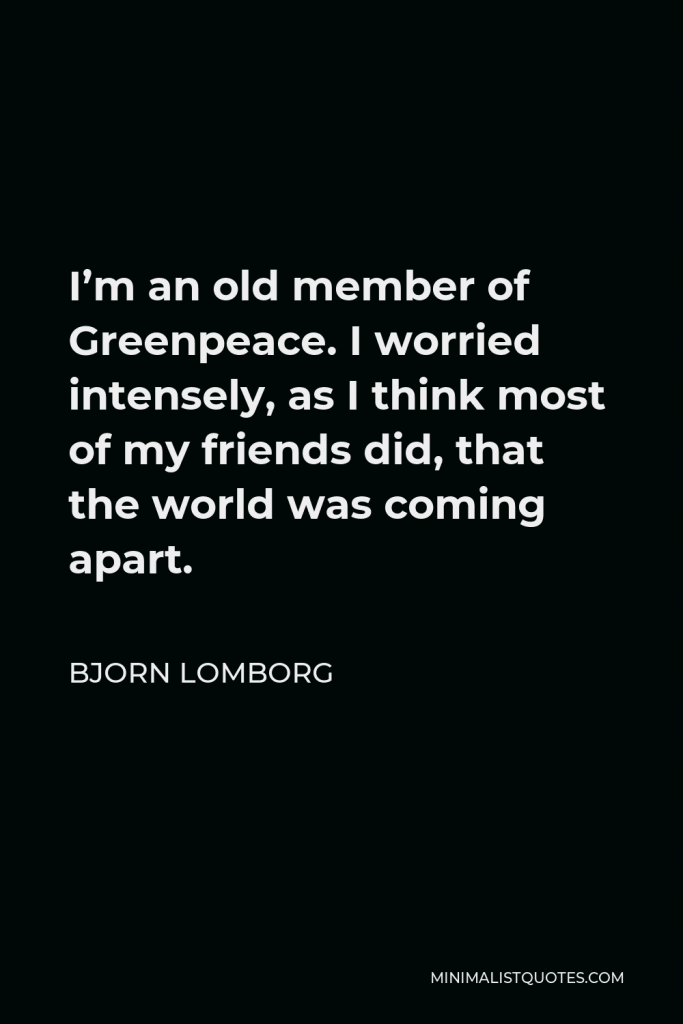

I’m an old member of Greenpeace. I worried intensely, as I think most of my friends did, that the world was coming apart.
BJORN LOMBORG -





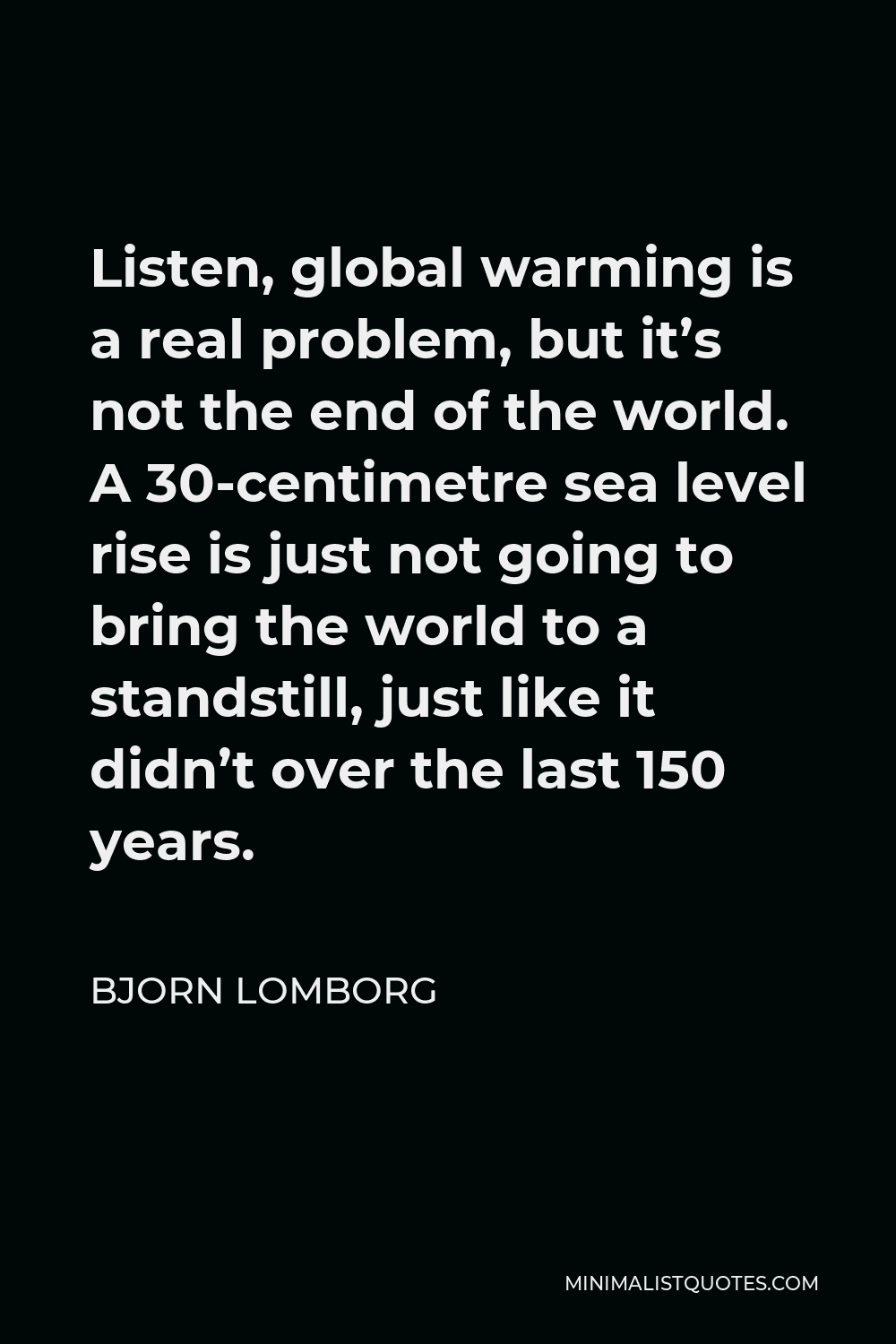
Listen, global warming is a real problem, but it’s not the end of the world. A 30-centimetre sea level rise is just not going to bring the world to a standstill, just like it didn’t over the last 150 years.
BJORN LOMBORG
